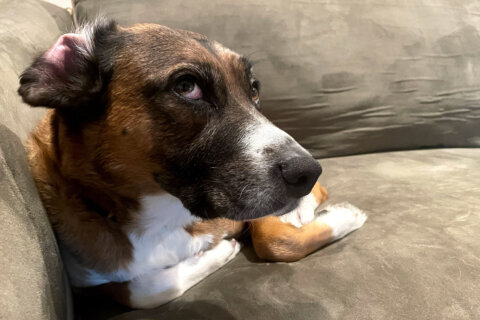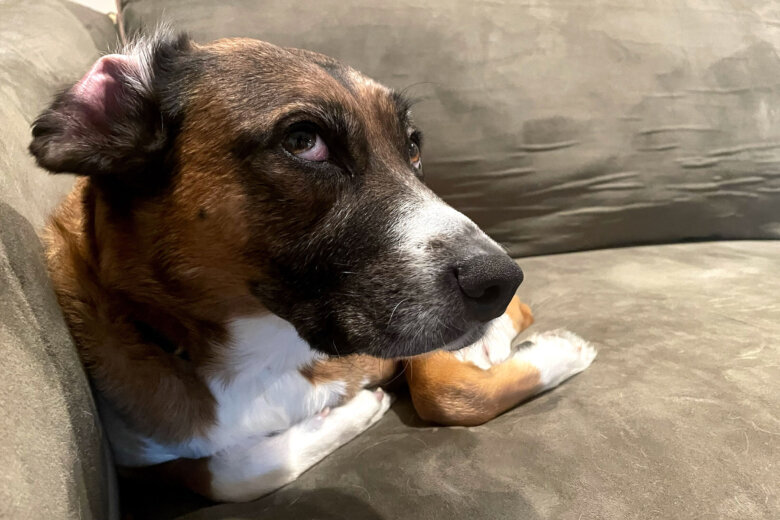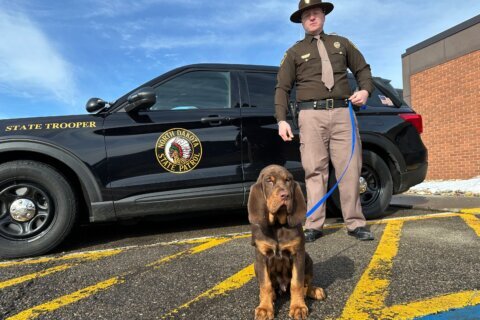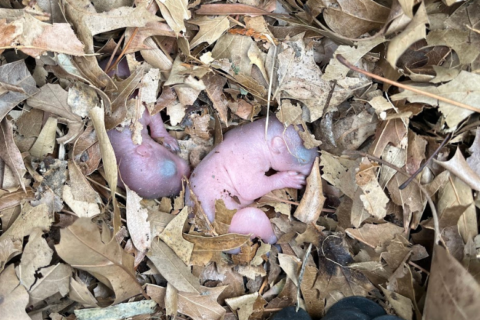
Dogs and cats are just as uncomfortable as their humans, with the ongoing pollution and unhealthy air from wildfires in Canada.
“We’re seeing very similar respiratory issues in animals, as people are complaining about,” said Christine Klippen, an emergency veterinarian at Friendship Hospital For Animals, in D.C. “Increased coughing, reverse sneezing, animals with itchy eyes, and itchy feet, as a result of the smog that’s going on outside right now.”
Klippen said pets, like humans, can find it harder to breathe in unhealthy air conditions if they have ongoing health concerns: “So, if you have underlying diseases, such as a heart disease, asthma, chronic allergies, lower airway disease, then they’re going to be affected by the smog.”
While humans can stay indoors with air conditioning all day, most dogs travel outside for restroom breaks or a brief walk several times a day. If you see a furry friend struggling to breathe, or experiencing other respiratory symptoms, consult a veterinarian or animal hospital, said Klippen.
“If they go outside, keep their trips out to use the bathroom fairly brief,” said Klippen. “And, refrain from lots of exercising in this air pollution.”
Although animals enjoy walking and playing outdoors, Klippen said it’s safer for pets and humans to stay indoors during the unhealthy air.
“There are still lots of things [that] can be done inside, spending time interacting with them,” said Klippen. “Things like puzzle feeders or snuffle mats, especially with high energy animals … sometimes, we just need a quiet day.”
Big cats are cause for concern, too.
At the National Zoo in D.C., many of the animals that spend most of their time outdoors have been brought indoors, with the Zoo also citing the health-risk similarities between animals and humans.
The Zoo closed to the public on Thursday day due to poor air quality. According to the Zoo, the bears, big cats, pandas, and apes are being kept indoors only right now. Elephants have the option of being inside or outside. As for the birds, they remain outdoors.
“Given some of the unique respiratory characteristics of avian species, there is a tendency to scrutinize them more during this type of event, but the risk is not much different compared to mammals, reptiles, and amphibians,” said Dr. Don Neiffer, Chief Veterinarian of Smithsonian’s National Zoo and Conservation Biology Institute.
However, at the Owl Moon Raptor Center in Boyds, Maryland, Director Suzanne Shoemaker said there is added concern about the safety of wild birds and those they are helping to rehabilitate.
“I have to say I’m worried about it,” Shoemaker said.
For the birds they are caring for, the rehabilitation center can’t bring them into air-conditioned buildings. So, the birds remain outside.
Shoemaker said while they haven’t treated any birds sickened by the smoke yet, more days of smog could change things.
“If this is going on for a period of days, we might start seeing more coming in as a result, again, of cumulative effects of this poor [air] quality,” Shoemaker said.
The smog couldn’t come at a worse time — many birds are welcoming hatchlings to their nests. For the little ones, the smoke could be lethal.
“We might be losing baby birds as a result of this poor air quality and therefore, the success of nests could really be affected,” Shoemaker said.
One of the biggest issues is that there isn’t a lot of research on the prolonged impact of poor air quality on birds and other wildlife, so only time will tell how well or poorly the animals do during this unprecedented event.
Shoemaker said people should be on the lookout for birds suffering from the smoke: the most obvious sign is a bird that is staying on the ground and appears to be in distress.
“They might wind up on the ground because they’re having trouble breathing.”










